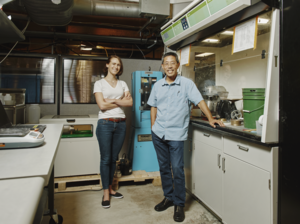
Cambridge-based micro-mobility startup Superpedestrian raised $20 million to finance the production and rollout of its "ultra-safe" scooter fleet. Spark Capital, General Catalyst, Hanaco Ventures and Empire Angels participated in the round.
The MIT spin-off company, which has raised $64 million in venture capital to date, designed the proprietary vehicle intelligence technology, which allows its scooters to self-detect and fix over 100 common malfunctions like braking issues, battery fires, geofencing compliance and speed and parking management.
“Scooter operators today don’t engineer the key electronic systems in their vehicles; instead they source off-the-shelf hardware, giving them almost no control over vehicle functionality. This prevents them from detecting and addressing issues of vehicle safety and reliability at the core,” Emily Castor Warren, Superpedestrian advisor and former Lyft and Lime policy executive said in a statement.
Superpedestrian scooters will not sell to retail customers. Instead, its fleet will be licensed to ridesharing operators like Lime and Bird. For a burgeoning industry that's currently subsidized by venture dollars, scooter fleet operators are still in choppy waters when it comes to unit economics and profitability.
For instance, scooter companies roughly make $2.43 in revenue per mile but their costs hover around $2.55.
Here's where Superpedestrian believes its autonomous vehicle maintenance technology can make a difference. Fleet operators frequently repair, charge and replace vehicles and with cities tightening safety requirements and stricter geofencing, the need for this technology is more pronounced.
The startup has invested over five years in developing its vehicle intelligence platform, its proprietary software that controls everything on the vehicle, including the batteries, motor, data encryption, communication, as well as decision-making. The technology allows scooters to instantly detect events that can cause malfunction, triage each issue, and determine the appropriate response to prevent the issue from causing damage to the vehicle, and consequently the rider.
"Any way in which a human could break the scooter, we wanted to avoid. The bid of the safety problem that the industry faces is scooters mechanically and electrically breaking," said Graham Gullans, vice president of business and corporate development.
The seven-year-old company's flagship product the Copenhagen Wheel, developed at the MIT Senseable City lab, is a rear-wheel electric bicycle system that transforms the bike into a smart electric hybrid/pedelec.








